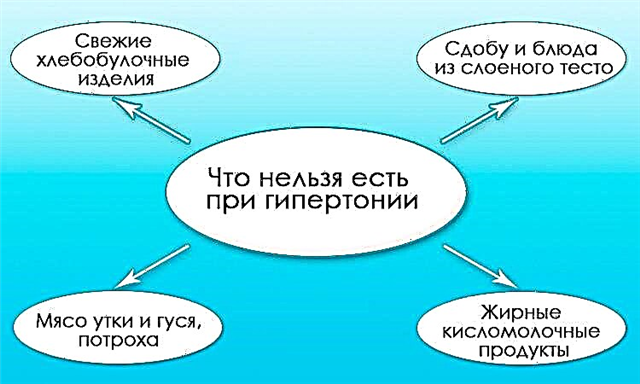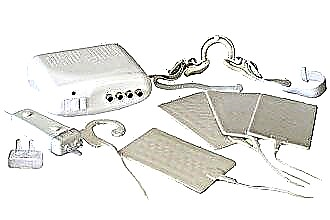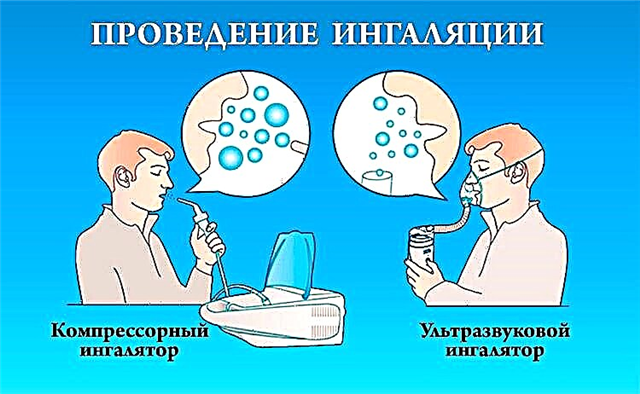Sinusitis spray is a functional and convenient form of the drug intended for the local treatment of inflammation in the maxillary sinuses. The vials are equipped with hand pumps and sprayers that convert the liquid into a finely dispersed suspension. For bacterial and purulent lesions of the maxillary (maxillary) sinuses, antimicrobial, vasoconstrictor, mucolytic and anti-inflammatory drugs are used.

Treatment of sinusitis (maxillitis) involves the use of medications of etiotropic and symptomatic action. The former include systemic antibiotics, which kill infections in the airways. Sprays are symptomatic drugs that do not eliminate the cause of the disease, but stop its manifestations. In today's publication, the pharmacological groups of nasal agents that are included in the maxillitis treatment regimen will be considered.
List of pharmaceutical preparations
 Spray for nasal sinusitis has a number of advantages over nasal drops. The finely dispersed liquid penetrates into the most distant parts of the nasopharynx, including the maxillary sinuses. The active components of the drug accumulate in the foci of inflammation, due to which the desired therapeutic effect is achieved.
Spray for nasal sinusitis has a number of advantages over nasal drops. The finely dispersed liquid penetrates into the most distant parts of the nasopharynx, including the maxillary sinuses. The active components of the drug accumulate in the foci of inflammation, due to which the desired therapeutic effect is achieved.
What types of sprays are used to treat sinusitis? Most often, the disease is provoked by the bacterial flora, which is represented by meningococcus, Staphylococcus aureus, pyogenic streptococcus, etc. Antimicrobial, decongestant (vasoconstrictor), anti-inflammatory and wound healing medications are used to destroy the infection and alleviate the symptoms of the disease.
Decongestants (vasoconstrictor drugs)
Vasoconstrictor sprays for sinusitis should be used with caution, as they are addictive. They contain adrenergic receptor stimulants that constrict the capillaries in the nasal cavity. Due to this, swelling in the airways is reduced, which contributes to the outflow of exudate from the paranasal sinuses. In other words, decongestants are used to improve the drainage of the maxillary sinuses, which prevents the penetration of nasal fluid into the surrounding tissue.
Spontaneous perforation of the maxillary sinus is fraught with periostitis, inflammation of the orbit of the eyes, osteomyelitis and brain abscess.
Depending on the duration of the drug's action, several groups of decongestants are distinguished. When treating sinusitis, the following types of sprays are usually included in the therapy regimen:
- short-acting ("Sanorin", "Naphazolin-DF") - vasoconstrictor aerosols with naphazoline, which last no more than 4 hours;
- medium action ("Dlyanos", "Xymelin") - sprays for sinusitis with xylometazoline, which are softer and longer than naphazoline for 1-2 hours;
- long-acting ("Nazivin", "Knoxprey") - nasal drugs based on oxymetazoline, which last for at least 10-12 hours.
Short-acting decongestants are recommended for use during the day, and long-acting decongestants before bedtime. Frequent use of vasoconstrictor aerosols is fraught with dehydration of the mucous membrane and the development of a drug-induced rhinitis. To prevent complications, it is recommended to use the drugs no more than 3-4 times a day for no more than a week.
Mucolytics
For the treatment of sinusitis, mucolytic agents are very often prescribed. They reduce the viscosity of the nasal exudate, which prevents it from accumulating in the paranasal sinuses.  Mucolytics contain components of plant origin (extract of cyclamen, melilot, hawthorn, ivy), which liquefy stagnant mucus without increasing its volume. Due to the outflow of nasal exudate, the feeling of heaviness in the paranasal sinuses and pain at the level of the bridge of the nose are eliminated.
Mucolytics contain components of plant origin (extract of cyclamen, melilot, hawthorn, ivy), which liquefy stagnant mucus without increasing its volume. Due to the outflow of nasal exudate, the feeling of heaviness in the paranasal sinuses and pain at the level of the bridge of the nose are eliminated.
The following nasal remedies are commonly used to relieve symptoms in adults:
- Rinofluimucil;
- "ACC Sinus";
- Sinusi-Lift.
Thinning sprays can cause watery eyes, a burning sensation in the nasopharynx, and stinging eyes. Therefore, they are prescribed to children only with high risks of spontaneous opening of the maxillary sinus and the penetration of purulent exudate deep into the cranial structures.
Sprays for rinsing the nasopharynx
Preparations based on sea and ocean water have moisturizing, decongestant and disinfecting properties. Treatment of the nasopharynx with saline aerosols helps to cleanse the paranasal sinuses from stagnant mucus, allergens and pathogens. To sanitize the nose with sinusitis, the following can be used:
- Morenazal;
- "No-Salt";
- Dolphin;
- "Otriv in the Sea";
- Humer.
With inflammation of the nasopharynx, it is recommended to use isotonic aerosols, in which the salt concentration does not exceed 0.9%.
Hypertensive drugs (Humer 050, Hypertensive Marimer) contain more salt than blood plasma. Due to the difference in osmotic pressure in the spray and intercellular fluid, excess moisture is “drawn out” from the tissues of the nasopharynx. This reduces swelling and makes breathing easier. But you need to use such funds with caution, as they can lead to dehydration of the nasopharynx and nosebleeds.
Antibacterial drugs
Antibacterial nasal sprays for sinusitis are prescribed at the initial stages of the development of the disease. They destroy the microbial flora only in the treated areas of the nasopharynx, therefore, they cannot be used as monopreparations. Sometimes aerosols with antibiotics are included in the complex treatment of bacterial and purulent sinusitis.
Local antimicrobial treatment is aimed at destroying the infection in the foci of inflammation, i.e. maxillary sinuses. With timely treatment of the nasal cavity with an aerosol, the likelihood of disease progression decreases. To prevent the further development of sinusitis, it is recommended to use the following medications:
- "Bioparox";
- "Framinazin";
- "Sofradex".
Local antibiotics can cause side reactions - burning sensation, urticaria, swelling of the nasopharyngeal mucosa, etc. Therefore, they can only be used in dosages recommended by a specialist. The minimum course of antimicrobial treatment is 7-10 days.
Hormonal drugs
 Topical glucocorticosteroids are hormonal drugs that have antiphlogistic (anti-inflammatory) effects. They can cause side effects, so they are usually not used in pediatric practice. To relieve inflammation in the maxillary sinuses, the following hormonal sprays are used:
Topical glucocorticosteroids are hormonal drugs that have antiphlogistic (anti-inflammatory) effects. They can cause side effects, so they are usually not used in pediatric practice. To relieve inflammation in the maxillary sinuses, the following hormonal sprays are used:
- "Mometasone";
- "Tafen";
- Avamis;
- "Beconase";
- "Nazonex".
It is possible to inject a glucocorticosteroid spray into the nose only with the development of a polyposis or allergic form of sinusitis.
Few people know that synthetic hormones reduce local immunity and therefore can provoke an exacerbation of infectious inflammation. In this regard, nasal glucocorticosteroids will be included in the treatment regimen for diseases caused by an allergic reaction or the formation of polyps in the paranasal sinuses.
The active components of the drug do not enter the systemic circulation, but they affect the structure of the tissues in the nasal cavity. Abuse of hormonal aerosols leads to increased fragility of blood vessels and thinning of the mucous membrane, which is fraught with the development of atrophic rhinitis and bleeding.
Nasal sprays for children
A pediatrician should select a suitable nasal spray for sinusitis for a child, focusing on the patient's age, features of the course of the disease and anamnestic data. As a rule, aerosols with a low concentration of active substances or based on herbal ingredients will be included in the treatment regimen. In the acute course of sinusitis, decongestants and hormonal agents are prescribed in a children's dosage with clear restrictions on the duration of use.
The local treatment regimen for sinusitis in children may include the following list of nasal agents:
| Pharmacological group | Mechanism of action | Drug name |
|---|---|---|
| moisturizing | normalize the secretory function of the mucous membrane and cleanse it of nasal secretions | "Aqualor", "Physiomer" |
| antibacterial | destroy the walls of pathogenic microbes, thereby accelerating the regression of inflammation | "Polydexa with phenylephrine", "Fyuzafunzhin" |
| combined | relieve the manifestations of allergies and facilitate nasal breathing due to vasoconstriction in the nasopharynx | Sanorin-Anallergin, Vibrocil |
| vasoconstrictor | reduce swelling in the mucous membrane, thereby accelerating the outflow of purulent exudate from the maxillary sinuses | Knoxprey Kids, Adrianol 0.1% |
| thinning | reduce the viscosity of the nasal secretion and accelerate its excretion from the accessory sinuses | Sinuforte, Weeks Active |
| anti-inflammatory | soften the mucous membrane and restore its functional activity | "Pinosol", "Evalipt-spray" |
Preparations in the form of a spray are not recommended for use in the treatment of children under 1 year of age, since sudden inhalation of a finely dispersed liquid can lead to a spastic cough.
It is possible to inject an aerosol into the nose with sinusitis, subject to certain rules:
- the nasal passages are pre-cleaned of nasal exudate using an isotonic solution;
- the nozzle of the spray is inserted into one nostril, and the other is pressed against the nasal septum;
- press the dispenser the required number of times, then take a shallow and slow breath.
Compliance with medical recommendations prevents the occurrence of spastic cough and bronchospasm. To avoid deteriorating health, it is undesirable to go outside immediately after the procedure.
Contraindications
Sprays of various pharmacological groups have their own limitations and contraindications for use. In particular, decongestants and hormonal sprays are usually not used for treating young children and pregnant women. An overdose of drugs has a systemic effect on the body, as a result of which side reactions occur - urticaria, nausea, tachycardia, etc.
Mucolytic sprays are not prescribed for children under 6 years of age. Some of them increase the secretion of nasal mucus, which leads to its accumulation in the paranasal sinuses. Antibiotics are contraindicated in persons with hepatic and renal impairment. Penetration of the active components of the drug into the blood can lead to impaired liver and kidney function.
Conclusion
Inflammation of the mucous membrane in the maxillary sinuses leads to the development of sinusitis. Nasal sprays can help improve drainage of the paranasal sinuses and prevent further infection. Antibacterial aerosols destroy the microbial flora in the nasal cavity, moisturizing and mucolytic aerosols - they dilute mucus and accelerate its evacuation from the maxillary sinuses, vasoconstrictor - relieve swelling and restore nasal breathing. Hormonal sprays are used in the treatment of polyposis and allergic sinusitis.
In pediatric practice, aerosols are used to treat children from 1 year old. The local therapy regimen includes decongestants, antibiotics, moisturizing and thinning drugs. To speed up the healing process and enhance the effect of drugs, the nasopharynx is cleaned with isotonic solutions before using aerosols. When drawing up a course of treatment, the patient's age, individual intolerance, anamnestic data and the causes of sinusitis are taken into account.



